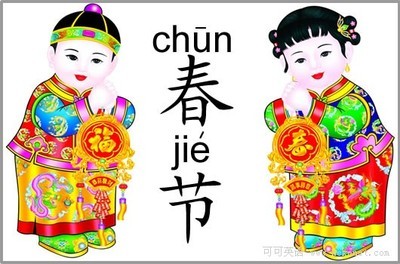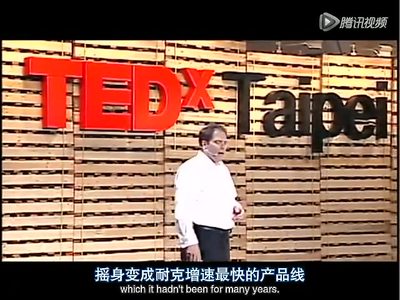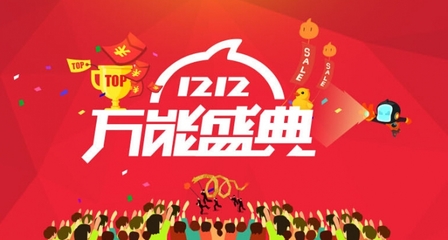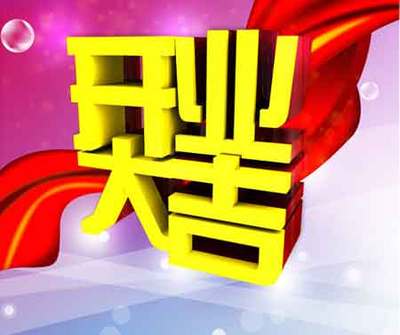General comments from Joanne
I love this presentation! I certainly have learntmuch from reading your research. I’m pretty sure that your audiencewould feel the same way as I do. Lovely!
But I’m not sure if you could squeeze all thefollowing within 25 minutes. Probably we will have to remove someof the information and make it a preparation for the possiblequestions in the Q&A section.
Besides, as to the specific conventions indifferent regions, did you find this information online or youinterviewed your classmates to make the report? If they were thepersonal descriptions from your classmates, it would be better ifyou could interact a little bit with your audiences by asking themto repeat they experience. Otherwise let’s not forget toacknowledge their names in your presentation. Let’s do this withrespect, not only to the interviewees involved, but to thetraditions as well. Try not to laugh if you come across some reallypeculiar customs. We have to demonstrate that when it is aboutculture, there is no superiority of inferiority. There is a reasonfor everything. We have to learn not to judge.
If time allows, it would be better if you couldorient a brief discussion in class, or you could directly give outyour ideas anyway. Ask them what might be the major concern for theabandoning of some traditions? What is the new replacing traditionanyway? Do you think we have to maintain the old lifestyle or moveon without looking back? Do you think we have to somehow preservethe traditions? What’s the young persons’ attitude towards theseold customs? To the people who still attach to the old traditions,do they feel an urge of changing?
Let’s try to remember, apart from introducing allthese fascinating conventions in different places, the mostimportant task is to arouse the culture awareness among youraudiences. It’s a shame that some of the young persons know moreabout the Christmas and Valentine’s Day than our own festivalsbecause of the longtime cultural inconfidence and that we have beensoaking in the Hollywood movies and Western culture for toolong.
Look forward to your great show next Wednesday! Ifyou have any questions, please feel free to let me know. Goodluck.
Best
Joanne
The Culture of SpringFestival
1. Legend of Year
New Year is an important traditional Chinese holiday. InChina, it is also known as the Spring Festival, the literaltranslation of the modern Chinese name. New Year celebrationstraditionally ran from Chinese New Year's Eve, the last day of thelast month of the Chinese calendar, to the Lantern Festival on the15th day of the first month, making it the longest festival in thecalendar. Because the Chinese calendar is lunisolar, New Year isoften mentioned as the "Lunar New Year".
The origin of Chinese New Year is centuries old and gainssignificance because of several myths and traditions.Traditionally, the festival was a time to honor deities as well asancestors. It is celebrated in countries and territories withsignificant Chinese populations, including Mainland China, HongKong, Macau, Taiwan, Singapore, Thailand, Indonesia, Malaysia,Mauritius, Philippines, and also in Chinatowns elsewhere. It isalso considered as a major holiday for the Chinese and has hadinfluence on the lunar New Year celebrations of its geographicneighbors.
In China, regional customs and traditions about thecelebration of spring festival vary widely. Often, the New Year'sEve is an occasion for Chinese families to gather for the familyreunion dinner. It is also traditional for every family tothoroughly cleanse the house, in order to sweep away anyill-fortune and to make way for good incoming luck. Windows anddoors will be decorated with red color paper-cuts and couplets withpopular themes of "good fortune" or "happiness", "wealth", and"longevity." Other activities include lighting firecrackers andgiving money in red paper envelopes.
Although the Chinese calendar does not use continuouslynumbered years traditionally, outside China its years are oftennumbered from the reign of the 3rd millennium BC YellowEmperor.
First Legend
According to Chinese mythology, Nian is a beastthat lives under the sea or in the mountains. Once each spring, onor around New Year, it comes out, hiding to attack people,especially kids. Weaknesses of the Nian are purported to besensitive to loud noises, and fear the red color. The Chinese Liondance is known to have originated from the legend of the Nian. Thetradition has its origins in a story of the Nan’s attack on avillage. After the attack, the villagers discussed how to make Nianleave them in peace. The traditions of firecrackers and red robesfound in many Lion Dance portrayals originate from the plan thevillagers had in which drums, plates and empty bowls were hit, redrobes were worn, and firecrackers were thrown, causing loud bangingsounds that they hoped to intimidate the Nian. According to thesame myth, the Nian never appeared in the village again. The Nianwas still believed to exist, but was never expected to make anappearance to a human again. It thus became symbolic in the eyes ofthe town people, and they continued doing what was needed to driveit away. With time passed by, it becomes a tradition.
Second Legend
As the old saying goes, there is a four hornsfour-footed evil beast, XI. Because of winter snow covering theland and hungry for food, `XI` often go to the village nearby tofind food. Because of its huge body with grumpy and anomaly fiercecharacteristics, `XI` often does lots of harm to the villagers,which causes great disaster. Every end of the winter, people pickup their clothes and escape to the bamboo forest.
This year, people in the village are tiding thingsup and about to run to the forest. On the way to escape, they meeta seven years old boy by the roadside. A good old woman helps thechild and takes the child away together from the evil beasts --"xi". The boy comes with the old woman to the bamboo forest.Then,thechild wakes up and tells everyone to cut some ribbed belt bamboo,with which all can go home tonight. Hang a piece of red cloth inthe door of their houses and wait until tomorrow morning. Thevillagers listen to the words of the child dubiously, but theystill take their family back to village as the boy says.
Soon it comes into the night, the villagers areafraid that "XI" will come, so no one dare to sleep, and they hangred cloth on their door, they all come to the middle of thevillage, and bring some pieces of broken bamboo which are takenfrom the forest. Because the weather is cold, they set a fire tokeep warm and take some food to eat when they feel hungry in themidnight. Then it comes to midnight, they suddenly hear a loud hugeroar and all fear down into a group. Then the clever child suddenlystands out and tells everybody: “I’m going to take its attentionand then everyone throws the broken bamboo to `XI` around thefire.
Before the good old woman stretched out her handto grasp him, the child has come to the entrance of the village.`XI` is rushing through the village, destroying a lot of things."Xi" hears the child's crying, then "Xi" follows the voice to findthe child. `XI` is afraid to break into people’s house because ofthe red cloth hanging on the door. `XI` doesn't dare to enter, andalong the voice of the child, "Xi" comes to the middle of the spacein the village. Then the child speaks a loud: "folks, throw firedbroken bamboo!!”, but everyone is too afraid to throw anything andstand there frozenly. At this moment, "Xi" picks the poor kid outwith its horn and drops him on the ground heavily. The boy is dead.The villagers hear the sound of the child fall to the ground andcome back to reaction. They go to the fire and throw broken bambooto "Xi". Because the broken bamboo has been cut down soon, the wetbamboo blazes and cracks and bursts loudly. "XI" hears the sound ofcombustion of bamboo; it scampers off like a rat without anyfurther damage to the village.
The morning is coming; "XI" has rushed awaybecause of the sound of bamboo combustion. The villagers aresurvived but they couldn’t be happy because the boy was killed by`XI`. This is the first day in the first month. The clever boy’sname is "Nian". The younger generation start to memorize the cleverboy who is called `Nian`.
Years later, people do not sleep all night, butget together and sit around on the last day of year with lots offood and lots of broken bamboo for fear that `XI` is still aliveyet. However, `Xi` never comes back and nobody has ever seen thatmonster again. Meanwhile, the legend and tradition have been leftas that we gathered here to have the New Year's eve dinner, andstay up together to make Squib, stick a couple and visitneighborhood to give greetings and wishes for the New Year'sday.
Now a lot of proverb and habits are derived fromthe story `Nian Chu Xi`: people in order to let his descendantsremember this kid who has saved the whole village -- `Nian`, afterthe dawn of the morning called `Nian`. And the first day of thefirst month, as well as lunar New Year's day is called `GuoNian`.
2. The Custom of Spring Festival
There are many customs in spring festival. Here welist some traditional customs:
(1) Kitchen godworshipping (Jizao)
Kitchengod worshipping (Jizao) is also called “xiaonian” and it is thebeginning of the spring festival. People offer sacrifices to thekitchen god on 23rdor 24th of the twelfth lunar month. On this day,every family will buy sticky sugar. There is a tale about Kitchengod worshipping (Jizao).
It issaid that the kitchen god has stayed at each home since last NewYear’s Eve to protect and monitor the family. The kitchen god willgo to heaven to report to the Jade emperor about the well doing andevildoing of the family on 23rd or 24th ofthe twelfth lunar month. Then the Jade emperor decides what kindsof weal and woe the family will get in the new year and he tellsthe kitchen god to do it. In order to let the kitchen god don’tspeak too much, people will sacrifices the kitchen god with stickysugar to stick his mouth, so he cannot speak in front of the Jadeemperor.
(2) Dusting dust
“On24th of the twelfth lunar month, dusting dust”, everyfamily will do cleaning before the New Year. Because thepronunciation of “dust” and “old” in Chinese are similar, anddusting dust during spring festival means “to remove something oldand set up something new”. It intends to put all poor luck, badluck out. The custom bears the hope of destroy the old andestablish the new and the pray of ringing out the old year andringing in the New Year.
(3) Pasting spring festival couplets
Springfestival couplet is a kind of couplet, because this kind of coupletpastes during spring festival, so people call it spring festivalcouplets. And it is also called “antithetical couplet written ondoors” (mendui). Spring festival couplets have been popular sinceMing dynasty. The origin of spring festival couplet is peach woodcharm and it is used to counteract evil force. Initial peopleinscribes peach wood into humanoid and hang it besides the door,and later people paint portrait on peach wood and post it on thedoor.
Becausethe color of peach wood is red, and red means lucky, so people usered paper instead of peach wood. But temple uses yellow paper tomake spring festival couplets, if the elder of one’s family haspassed away, during the first year, they should use white paper tomake spring festival couplets, the second year, they should usegreen paper, and the third year, they should use yellow paper,after they can use red paper to make spring festivalcouplets.
(4) Pasting “fu” character
Whenpasting spring festival couplets, people will also paste “fu”. “fu”means good fortune and luck, and it also reflects the people’syearning to happy life. Sometimes, people pastes “fu” upside down,this means “happiness and luck have already been here”.
(5) Ancestor sacrifice
Sacrificing ancestor in New Year’s Eve is a traditionalcustom in China. On one side, it derives from the traditionalconcept “Filial piety is the most important of all virtues”, andsacrificing ancestor in New Year’s Eve means respecting andmissing. On the other side, people believes that their ancestor canprotect the descendant, justlike the god, so they sacrifice their ancestor when they worshipgod to ask them to protect the descendant could grow up healthilyand happily.
(6) The dinner on New Year’s evening
Thedinner on New Year’s evening is also called” family reuniondinner”. It is the first meal in the New Year’s Eve. No matterwhere you are, you have to come back and have dinner with yourfamily in this evening. The family member will stay together andhave a big dinner. The parents will be very happy to see theirchildren, and the children will take this chance to express theirgratitude to their parents.
(7) Stay up all night on New Year’sEve
On New Year's Eve, after familyreunion dinner, the family members will sit together, chat witheach other and wait for the special moment. Staying up in NewYear’s Eve means to drive away all bad things and to expecteverything goes well in the New Year.
(8) Set off firecrackers
In the midnight of NewYear’s Eve, people will set up firecrackers. As the old sayinggoes, setting off firecrackers can drive away the monster, butnowadays, people set off firecrackers just only to celebrate theNew Year. There is another meaning that the business people set offfirecrackers in the midnight of New Year’s Eve to pray for thattheir business will go well in the new year.
(9) Lucky money
Whenpaying a New Year call, the elder should divide the lucky money tothe younger, and it is said that the lucky money can pin evil,because the Chinese pronunciation of “year” and “ghost” aresimilar. The younger who get the lucky money can spend a year inpeace. In folk, people think the child can use the lucky money tobribe the evil. Now the custom of giving lucky money is stillprevalently, but the lucky money has been endowed with new meaning,such as the elder’s hope that the child can work hard and growhealthily in the new year.
(10) Lunar New Year visits
Visitingrelatives during spring festival is an old tradition in china, itcan help people to exchange their feelings and know how everythinghas been going on during last year of each other, and it is also achance for people to give the New Year’s greeting to each other.This kind of custom to visit relatives starts from the second dayof first month. On the second day of first month, the married womanshould bring her husband and children to pay New Year call to herparents, and she should bring some cookies and candy and somethingelse.
(11) The fifth of the first lunar month (powu)
The fifth of the first lunar month is also called“po wu” in Chinese, because many taboos of New Year can be brokenin this day, so people call it “po wu”. The main activity in thisday is “send poor”, here “poor” means the rubbish that collectsfrom the first day of New Year.
In addition, in the beginning of the fifth day,every family will open their doors and windows to welcome the godof wealth. And in this day, people shouldn’t drop around, or he/shewill bring the god of wealth to other’s home.
3、The New Year’s Special Customs of DifferentPlaces
There are some different traditional customs indifferent parts of China, but the family having a reunion dinnertogether on New Year’s Eve is same. People from north and southhave different sayings about the food they eat on this special day.Southern Chinese eat "Niangao" (New Year cake made of glutinousrice flour) on this special day, because a homophone of "Niangao",which means "higher and higher every year". In northern China, atraditional dish for the feast is "Jiaozi" or dumplings whoseshapes like a crescent moon. It is said that the more dumplings youeat during New Year celebration, the more money you can make in theNew Year. "Fish" is also an important dish on the feast. InChinese, the pronunciations of fish sounds like "save more".Chinese People always like to save money at the end of year becausethey think if they save more, they can make more in the nextyear.
Here we list some special customs of some placesin China.
Northeast of China
Some old Spring Festival customs still exist inNortheast of China. On NewYear's Eve, the first thing is a solemn ceremony tosacrifice ancestors, kowtow to the ancestors by their familystatus, which means ring out the Old Year and ring in the New Year.Subsequently, the family will have a familyfeast. During the family feast,the elder sit first, then the younger sit around, which meansfamily reunion. In order to bring people a sense of fullness, thisfamily feast must be a hearty meal, which indicate a good fortunefor the family.
Tianjin
It is a custom to drink “laba porridge” in Tianjinprovince on 8th of twelfth lunar month. In manyfamilies, the garlic will be soaked in vinegar to create “Labavinegar “in this day. There is aspecial decoration called “diaoqianer”, which is made by colorpaper, will be posted on the glass during the spring festival,which only be allowed to broken on the fifth dayof the first month of the lunar calendar. Otherwise it willbring bad lucky during the whole year. The fifth day of the firstmonth is called the “Po Wo” in Tianjin. On this day, every familywill eat dumplings. In their opinion, misfortune is associated with“villain”. So they make loud voice when cooking in order toindicate they are cutting “little man”, only keep “villain” awaycan people have a goodfortune. In the evening, it is necessary toplay firecrackers to avert disaster.
Shandong
The whole family will get up after midnight on NewYear's Eve to worship the gods. In many parts of Shandong, therural people will put a table in the yard with rich tributes,burning incense and "paper money" on it, which is called“fazhi”. In many Shandong rural places, the custom that kowtows topay New Year call in the first day of the lunar year still exists.Early in the morning before dawn, all the men in the family shouldkowtow to the elders in the family, and the children will get luckymoney. After breakfast, all the women in the family will kowtow tothe elders.On the secondday of the first month, all the men of the family will go toancestors' graves with rich tribute, paper money, incense,platinum, and also a lot of firecrackers, to comfort the spirits ofancestors in some place. The 3rd and 4th is the day to visitrelatives.
Shanxi
The people in Shanxi province will prepare for thespring festival after theeighthdayofthetwelfthlunarmonth.People will worship the “kitchen God” on 23rd of thetwelfth lunar month,andsweep the house thoroughly on the 24th,it is so-called “the day ofhudasao”. The preparation for the festival will reach a peak afterthis day. In the past, there is ballad very popular among thepeople, which said that “grinding Toufu on the 25th, accomplishingthe work on 26th, going shopping on 27th, making “zhatie” on 28th,buying wine on 29th, and making dumplings on 30th. On the NewYear's Eve, every family will stay up all night; it is also called"Aosui”. When the cock crowing, people begin to burn incense, lighta lantern, offer rich tribute, play firecrackers, welcome the god,sacrifice ancestors. After that, the whole family will payaNewYearcallto each other. Children kowtow to the elders, the elders then givethe lucky money to the children, which mean everything goes well inthe new year.
Fujian
Chinese New Year customs of the rural areas inFujian has its own characteristics. The house in the rural areashas many doors. Except sticking couplets, two sugar cane coveredwith red papers will be shelved on the both side of the door. Eachfamily will stack the potato vine outside the gate and ignite it.When it burns fully, the men in the family will jump over the fireby the seniority in the family, which is called “guohuoqun”. After"guohuoqun ", the family has to use the new broom sweeping thehall. When this task is finished, BenDou will be put together, thegarbage will be dumped outside of the door, and people hope thatthe trash and broom could bring something good, helping the familyto be rich. At the same time, the rest coal of the “guohuoqun” willbe collected to the stove,which is called "add prosperous", and it is the symbol offlourishing. Parents, children will sit beside the stove, which iscalled “staying up all night on new year’s eve around the stove".It is better to stay up all night, which is said that it willprolong parents’ lives. At the same time, the elder give luckymoney to the younger, which is known as “fenyuan”.
Guangdong
In Chaoshan, Guangdong province, the lunarDecember 24th is the time for "gods" to do annual work to report tothe organization. From this day, every family will clean theirhouses thoroughly. The furniture will be cleaned and this is called“caitun”. People will go to flower market on New Year's Eve.Flowers are essential, such as lily, orange, chrysanthemum, peachblossom and so on. It is believed that flower is a symbol of lucky;it will bring good fortune to the family. The first day of thelunar year is called “YuanRi”, means the beginning of the year andspring. People will begin to play firecrackers in thedawn. After that they will eat “Ganzi”(the“Ganzi” is bigger than orange, which is called “daji”, meanspropitious)、green olive and a variety of candies. Most peoplewould be vegetarian in this day, at least breakfast. Afterbreakfast, the whole family members will visit relatives(especially the people who is older than you) with the “daji” andfriends to pass on good wishes for the New Year. Rich blessingwords will be conveyed to each other. Master treats guests with“daji” and green olive, which means to return acompliment.
Sichuan
In most parts of Sichuan, it is believed that the“kitchen god” will go back to heaven for the annual work report onthe twelfth lunar month 23rd, so people will see off the “kitchenGod” cordially in this day. They will sacrifice ancestors and playfirecracker on New Year's Eve. All members of the family will stayup all night, which is known as “Staying-up”. “Tangyuan” is smalldumpling balls made of glutinous rice flour with rose petals,sesame, bean paste, jujube paste, walnut meat, dried fruit, sugarand edible oil as filling. So people eat them on the Lunar NewYear's Day to denote union, harmony and happiness for thefamily. In some parts of Sichuan, there are somespecial custom handed down from generation togeneration. Each day from the Lunar New Year'sDay to the thirteen day is a festival for one animal of the Chinesezodiac except 7th is for the human. People never go out on the 7thday of the first month and return home on 8th day. In the eveningof 15th day, people will bring a boat made by plant and burn it bythe river, which means to see off “nian”.
4. Bans during Spring Festival
There are many bans during Spring Festival, especially inthe first five days. In the morning of the New Year’s Day, peopleshould better have rice but not porridge, meat or take medicine,which means the beginning of an affluent year. People shouldn’t becalled up by their names, or he will be urged by others the wholeyear. What is more, you’d better not say happy new year to thepeople who hasn’t got up in the morning to prevent him from lyingin bed all the year round. At that day, married daughter can’t goback to her parents’ home. Or, as the old saying goes, they may eatout of her parents.
Consideringthe water god’s birthday is at the first day and second day of thenew year, people may well not have their clothes washed. During thedays, it is better not to have a noon sleep to prevent from beinglazy all the year, and not to pour the dirty water, take out thetrash, and sweep the floor to prevent the luck out of thehouse.
5. The Spring Festivals in ForeignCountries
ThewholeJapanesefamilywouldgotothestreetstogreettherisingsun,andthengototheshrineandsayhellotofriendsandrelativesintheearlymorningofNewYear.TheysaidtheNewYearas"positiveday".Onthisday,theirbreakfastishearty,eatingsoba,drinkingthewineofSuTu.Theywillhavethreedaysvegetariandiettoshowpietytoprayforthecomingyear,adumbrativenextgoodluck.
TheNorthKoreansandChineseNewYear,aswealsohavepostedinTaoFueven,vulgar,grilles,NorthKoreansinNewYear,everyfamilystickcoupletandpictures,longevityorfairy'sportraiton,andpraygod,driveawaytheghosts,givehappiness.NewYear'sDaydawn,peoplewillputsomemoneytuckedintotheNewYear'sEveplunge,andthrowdownthepre-preparedscarecrowtocrossroads,whichmeanssendingawaytheevilandmeetingluckystar.Dusk,thewholefamilywouldburnthehairfallenoutduringthepreviousyear,whichmeansfamilymemberswillbehealthyinthec-omingyear.DuringtheSpringFestival,NorthKorea'swomenwearnewcloth.

ChineseNewYearinSingaporeisaccompaniedbyvariousfestiveactivities.OneofthemainhighlightsistheChinatowncelebrations.In2010,itincludedaFestiveStreetBazaar,nightlystagedshowsatKretaAyerSquareandaliondancecompetition.TheChingayParadealsofeaturesprominentlyinthecelebrations.ItisanannualstreetparadeinSingapore,wellknownforitscolorfulfloatsandwidevarietyofculturalperformances.ThehighlightsoftheParadefor2011includeaFireParty,multi-ethnicperformancesandanunprecedentedtravelingdancecompetition.
WithoneofthelargestChinesepopulationsoutsideofAsia,SydneyalsoclaimstohavethelargestChineseNewYearCelebrationsoutsideofAsiawithover600,000peopleattendingthecelebrationsinChinatownannually.Theeventstherespanoverthreeweeksincludingthelaunchcelebration,outdoormarkets,eveningstreetfoodstalls,Chinesetopoperaperformances,dragonboatraces,afilmfestivalandmultipleparadesthatincorporateChinese,Japanese,KoreanandVietnameseperformers.Morethan100,000peopleattendnotablythemainparadewithover3,500performers.Thefestivalalsoattractsinternationalmediacoverage,reachingmillionsofviewersinAsia.ThefestivalinSydneyisorganizedinpartnershipwithadifferentChineseprovinceeachyear.
InParis,thecelebrationsareheldsincethe1980iesinseveraldistrictsduringonemonthwithmanyperformancesandthemainofthethreeparadeswith40groupsand4,000performersareattendedalonebymorethan200,000peopleinthe13tharrondissement.
 爱华网
爱华网


